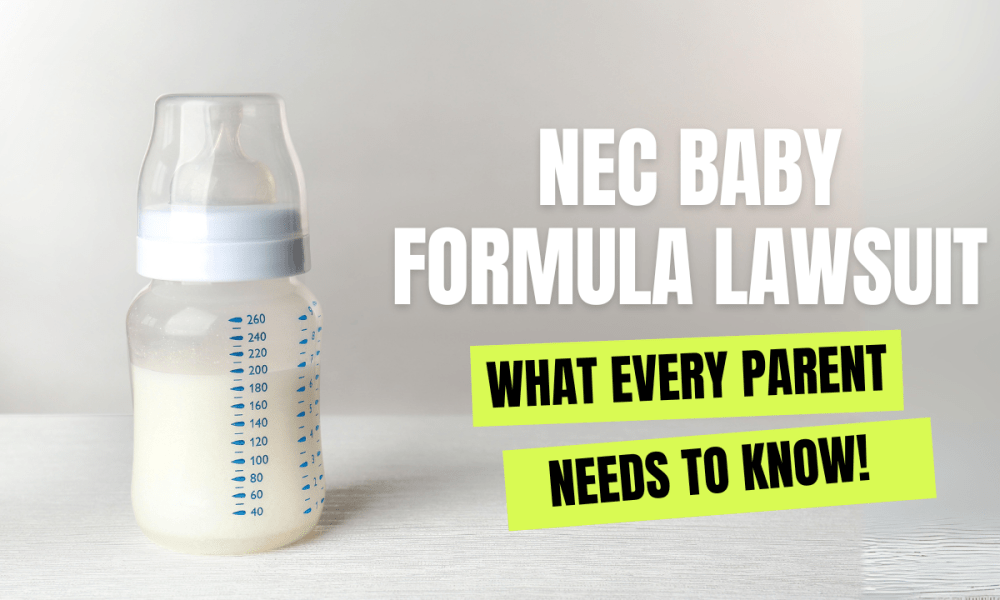
Bringing a newborn into the world is one of life’s most cherished moments. As a parent, your priority is doing everything in your power to keep your baby safe and healthy. That’s why it’s especially heartbreaking when products you trust, like infant formula, may be linked to serious health risks. If you’ve heard about the Enfamil NEC lawsuit and are wondering what it means for you and your family, you’re not alone. In this article, we’ll break down the key facts, what’s behind the lawsuits, and what steps concerned parents can take.
What Is NEC, and Why Is It a Concern?
Necrotizing enterocolitis (NEC) is a serious gastrointestinal condition that primarily affects premature or low-birth-weight infants. It causes inflammation and bacterial invasion of the intestinal wall, which can lead to tissue death, perforation, and in severe cases, death.
Symptoms of NEC can include:
-
Swollen or bloated abdomen
-
Vomiting (possibly green or yellow in color)
-
Lethargy or reduced activity
-
Blood in the stool
-
Difficulty feeding
Although NEC is rare, it is a dangerous condition that requires immediate medical attention. Treatments can range from antibiotics and feeding cessation to surgery in severe cases.
The Link Between Enfamil and NEC
Several scientific studies have suggested a potential connection between cow’s milk-based baby formulas—like Enfamil—and an increased risk of NEC in premature infants. While breast milk is often recommended as the best source of nutrition for preemies, many neonatal intensive care units (NICUs) supplement with formula when necessary.
Unfortunately, research has shown that some premature infants fed with cow’s milk-based formula are more likely to develop NEC compared to those who are exclusively breastfed or given donor human milk. This has prompted both legal and medical scrutiny into the use of such formulas in NICUs.
Understanding the Enfamil NEC Lawsuit
Over the past few years, a growing number of families have filed lawsuits against Mead Johnson, the manufacturer of Enfamil. These legal actions claim that the company failed to warn parents and healthcare providers about the increased risk of NEC associated with their product when used on premature infants.
The Enfamil NEC lawsuit does not allege that the formula is inherently defective for all infants. Instead, it focuses on the argument that Mead Johnson should have provided stronger warnings or avoided marketing Enfamil for use in premature babies altogether, given the known risks.
Parents involved in these lawsuits are seeking compensation for:
-
Medical expenses
-
Pain and suffering
-
Long-term care costs
-
Funeral expenses in fatal cases
-
Emotional distress
Many families feel betrayed, believing they were making safe choices for their child—only to discover that they may not have been fully informed.
What Courts and Lawyers Are Saying
While each lawsuit is unique, the general consensus among legal experts is that these cases hinge on "failure to warn" claims. Plaintiffs argue that Mead Johnson and other formula manufacturers prioritized profits over infant safety by not adequately disclosing risks, even when data suggested a potential danger.
Class action and individual lawsuits are moving through various courts, and some have already been consolidated into multidistrict litigation (MDL) to streamline proceedings. If the courts rule in favor of the plaintiffs, affected families may receive significant financial settlements or verdicts.
Should You Join the Enfamil NEC Lawsuit?
If your premature baby developed NEC after being fed Enfamil or another cow’s milk-based formula, you may have legal options. Consulting with an attorney who specializes in product liability or medical injury cases is a critical first step.
Most of these lawyers offer free consultations and work on a contingency basis, meaning you pay nothing unless your case is successful. This makes it accessible for families who are already dealing with enormous emotional and financial strain.
Joining the Enfamil NEC lawsuit is not just about compensation—it’s also about accountability. Many families say they want to prevent the same tragedy from happening to others.
Alternatives to Cow’s Milk-Based Formulas for Preemies
If you are currently caring for a premature infant, you may be wondering about safer alternatives to formulas like Enfamil. Here are a few options to discuss with your pediatrician:
-
Exclusive Breastfeeding: If possible, this remains the gold standard for infant nutrition, especially for preemies.
-
Donor Human Milk: Available through certified milk banks, this option provides human milk when a mother’s own supply is insufficient.
-
Human Milk Fortifiers: These are often used to supplement breast milk and can be derived from either cow’s milk or human milk.
-
Specialty Formulas: Some hypoallergenic or extensively hydrolyzed formulas may offer lower risks, but you should always consult with a medical professional.
It's important to make feeding decisions under the guidance of a pediatrician or neonatologist who understands your child’s unique medical needs.
Final Thoughts: What This Means for Parents
Learning about the potential dangers linked to a product as common and trusted as baby formula is understandably unsettling. But you’re not powerless. The growing number of lawsuits—including the Enfamil NEC lawsuit—has helped shine a spotlight on a problem that many families faced in silence for too long.
Whether you’re actively seeking legal advice or simply trying to stay informed, your actions matter. Not only are you advocating for your child, but you’re also helping to create a safer future for all babies.








Comments (0)